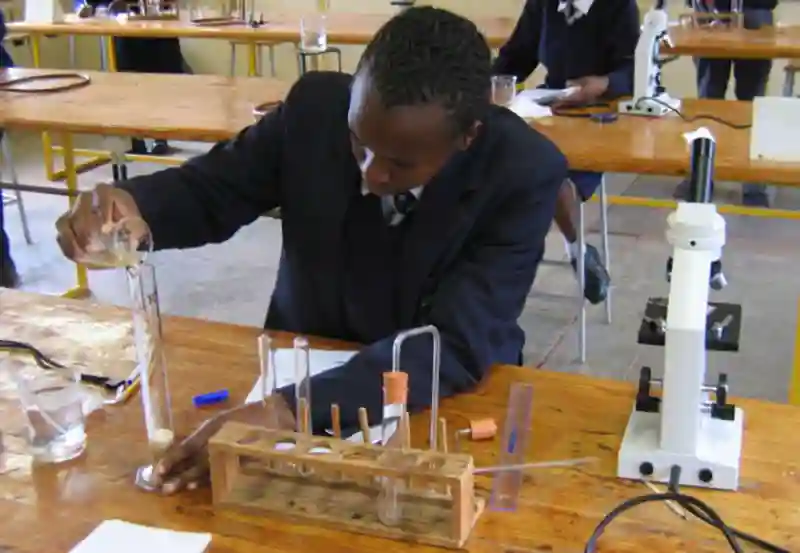Enock Mbabvu, a teacher at Manhemba Primary School in Mutoko, is writing a Shona science textbook for secondary schools in Zimbabwe, entitled Science Kuvana.
Mbabvu, who is a Teach for Zimbabwe (TFZ) fellow, noticed that learners were struggling to master science in English and decided to write the book in Shona to make it easier for them to understand.
He started writing the book in September last year and is now at the editing stage. He wants the book to be adopted as learning material in Zimbabwean schools.
Mbabvu believes that if learners can learn in their own language, they will have a better understanding of the subject. In an interview with NewsDay, Mbabvu said:
I usually consider myself the best science teacher, but one facilitator at a Teach for Zimbabwe workshop said something that touched me. He said: ‘I used to have a good science teacher and I cannot remember what he taught me.’ I then asked myself, what legacy am I going to leave after meeting these learners? So, I am writing a Shona science textbook.
I started writing the book last year in September. I thought it would be easy, but it is not a walk in the park. The difficulty is in choosing the right Shona words. Initially, I thought of just translating a science textbook, but when I went to the printers they advised me to put in more flesh so that the book becomes mine.
Enock Mbabvu expressed gratitude to Teach for Zimbabwe (TFZ) which provided him the opportunity to write the Shona science textbook.
There has been a shift in Zimbabwe from exclusively using English to incorporating local languages. For instance, Midlands State University is translating primary science textbooks into Shona and Ndebele to facilitate learning for students who prefer studying in their native language. The aim of these initiatives is to make education and other formal processes more accessible to all Zimbabweans, irrespective of their language background.
In addition, vernacular provisional driver’s license examinations have been introduced, replacing the previously English-only written test. Transport Infrastructural Development Minister Felix Mhona announced in January this year that the provisional driver’s license examination would be available in vernacular languages from February, allowing more people to take the test and obtain a certificate of competency.

